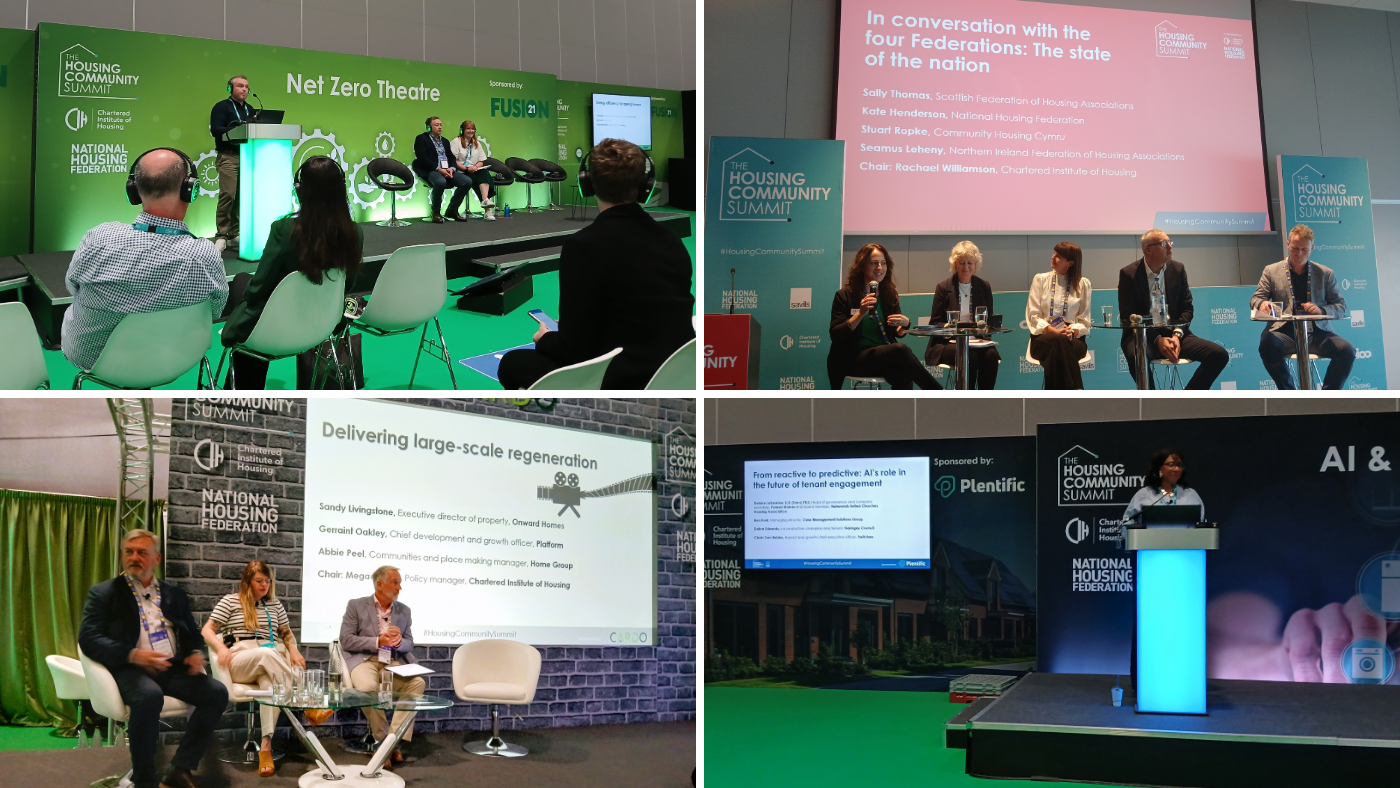My takeaways from the Housing Summit: AI, regeneration and decarbonisation

In this blog, our Membership Lead Jonathan Conway shares his main takeaways from the Housing Community Summit 2025.
It’s hard to believe it’s already been over a week since I came back from Liverpool. The summit was an amazing experience, and it was brilliant to see our members from across Wales contributing their experience and expertise on a UK-wide stage.
The sessions I was able to attend and the people I engaged with had a great impact on me, so I wanted to take this opportunity to share some of the thinking I brought back while it’s still fresh in my mind.
There was a strong focus on AI, a topic that is definitely at the forefront of the sector's collective mind as we consider the use, opportunities and risks of this fast-developing technology.
Some key takeaways:
- Focus on why we use AI, not necessarily how in the first instance.
- Decision making should not be devolved to AI. Its application is to support human decision making, not replace it. As Deidre LaBassiere LLB (Hons) FTLS put it, AI needs “governance with a soul”. Human interaction and empathy are key.
- The quality of what you get out of AI depends on the quality of the data you give it access to. And while data is important, it needs to be made real with narrative.
- AI can be used to anticipate need and to help deliver fast and effective solutions, but we also need to beware of it inheriting bias and look at the outputs through different lenses. For example, consider gender data gaps and review complaints/satisfaction data by gender to improve understanding.
- The benefits of AI need to be thought of in terms of the business and the tenants, and housing associations should be speaking to tenants about how they use AI within the organisation.
AI can be used to anticipate need and help deliver fast and effective solutions, but we also need to beware of it inheriting bias and look at the outputs through different lenses.
Regeneration was also a strong theme. For me, headlines from these discussions included:
- Large scale regeneration takes time. We need to be thinking in terms of 10 year projects, with full benefits perhaps not realised until 3 or 4 years after completion.
- Collaboration and stakeholder engagement are essential to the success of these projects. Work with and support grassroots organisations to access and support communities.
- Consistency of political and financial stability is really important.
- Focus on the community. When considering whether or not to regenerate an area, it’s essential to understand what it’s actually like to live there. Social value is as important as physical regeneration.
The path towards decarbonisation and Net Zero, as well as its implications in terms of finance and resources, was another of the hot topics for discussion. Here are some of the considerations that stayed with me:
- Don’t underestimate the need to work with specialists to understand what will work for different types of buildings. Up-to-date stock data is essential.
- Understand that you are working in tenants’ homes! Retrofit is invasive, and the move away from instantaneous heat is going to be a big transition for tenants. The media have caused erosion of trust, and tenants increasingly feel like ‘guinea pigs’, so understanding and responding to their concerns is key, not just in the lead up to the installation of new technology but afterwards as well.
- In Wales, targets have caused some inefficient behaviours. Often, there has been a focus on meeting short-term targets at the expense of the most efficient route to fulfilling the long-term ambition, but Welsh Government indicated they are open to dialogue and ORP partnership has been fairly successful.
I came back from Liverpool re-energised, cog wheels already turning as I consider how we might bring some of it into our offer to members.
If you attended, did these resonate? What were your main takeaways?